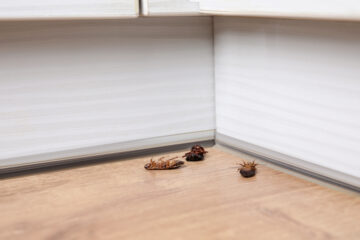The weatherman is calling for rain and you don’t have a worry in the world. A little rain never hurt anyone and you’re excited to fall asleep to the consistent dripping sound. In the morning, you’re running a little late to work, but have to grab something from the storage in your basement beforehand. This is when you notice small puddles and upon further inspection…a much bigger problem arising.
You don’t need heavy downfalls for your home to flood. Light rain from Spring showers can even cause basement floods. If the rainwater is not properly diverted and controlled, it can cause major damage to a home’s foundation.
Water affects foundation in three main ways: hydrostatic pressure, expanding soils, and erosion. Since most basements are either fully or partially surrounded by soil, it’s important to see how rainfall and changing seasons affects your soil and home.
Hydrostatic pressure occurs when the soil around your foundation is oversaturated with water. This results in pressure pushing your walls inward, causing cracks and bowed walls. Expanding soils is similar in that pressure from those saturated soils (now expanding) are causing bows and cracks, as well. Erosion is something homeowners also have to be weary of! First signs are often easily overlooked, but in no time at all, those little problems can become big ones due to rainwater washing away the soil that is supporting your foundation.
You might be wondering just how the water gets in your home. We have a few answers for you: The hydrostatic pressure and expanding soil pressure forces moisture through your basement walls and floors, and if you have a porous brick wall, this is especially easy. It can also come through the joints between your floor and wall if there was not a perfect seal when your home was being made. Water can also go through awful looking cracks that the pressure has made prior! But we are sure if it is the last answer you are already looking up the best way to stop the cracks from becoming worse and affecting the stabilization of your entire home.
When seasons change, as does the soil around your home. When Summer comes, the soil dries up and contracts, which can cause settling. Guess what else can cause your foundation to settle? When soil does the opposite and expands due to increased moisture!
Since Spring is right around the corner, aka the wettest time of the year, it is important to know what may happen to the soil surrounding your basement, or what may be already happening to your home’s foundation.
If you notice leaks, puddles or cracks forming in your basement, make sure to call a professional to help you find the perfect solution for you and your home. There is no reason why you should have to stress over rainfall in the middle of the night, instead of sleeping soundly!
Mikaela Lopez, Frontier Basement Systems













